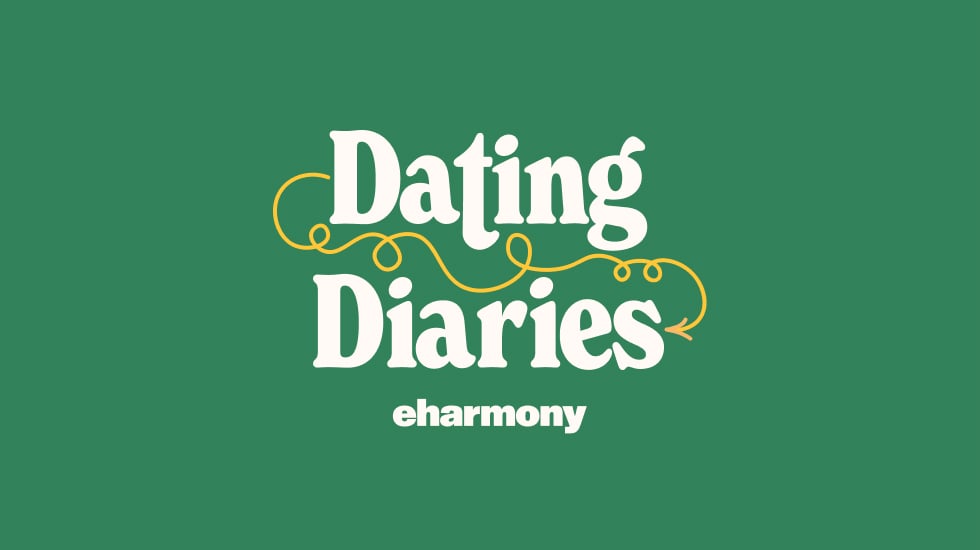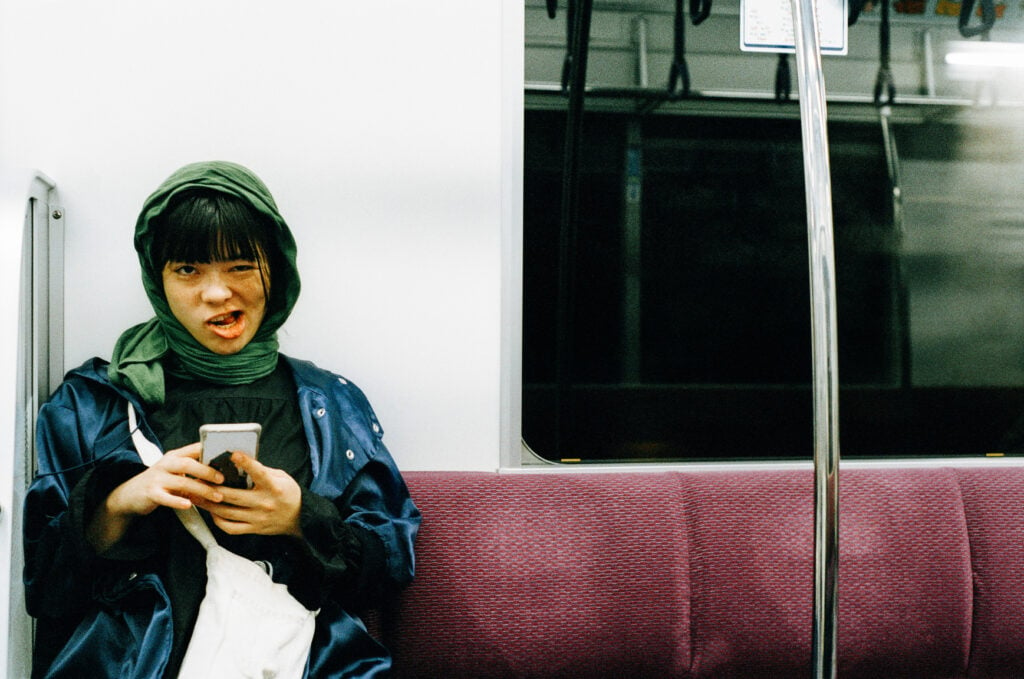
Dating Diaries, Unfiltered: The intersection of honesty and dating
Want the honest truth? eharmony’s Dating Diaries report is back! We’re exploring how honesty, confidence, and authenticity impact our love lives on dating apps and IRL.
From exploring (and debunking) dating insecurities to exposing our little white lies on dating apps, this edition of Dating Diaries is putting it all out there with brand-new data and advice from relationship experts.
Table of Contents
Singles’ Big (Dating App) Little Lies
The new research from eharmony found that a whopping 45% of UK singles surveyed say they are not being entirely authentic on dating apps. Furthermore, just 12% of singles believe others portray themselves authentically on dating apps, while 3 in 10 singles do not expect people to be authentic at all. Authenticity appears to increase with age. Of those who haven’t been authentic on dating apps, the number one reason for single women was to appear more attractive (26%); this is the same for men (19%) – coupled with trying to appear more confident.
Authenticity appears to increase with age. Of those who haven’t been authentic on dating apps, the number one reason for single women was to appear more attractive (26%); this is the same for men (19%) – coupled with trying to appear more confident.
Interests, education level and politics are the most ‘acceptable’ things not to be fully honest about when on dating apps. While editing your profile photos is the most common little white lie dating app users report at 21%, somewhat ironically, 64% of singles say edited photos are a hard no when choosing someone to date.
The most acceptable and unacceptable lies between the generations are:
ACCEPTABLE
UNACCEPTABLE
Dr. Lalitaa Suglani, an eharmony Relationship ExpertIf you want to meet someone that you can have a meaningful relationship with, the key is to bring your true self to your profile and then to your date. Your quirks make you you, and finding someone who gets you, and vice versa is what relationships are all about.
IN YOUR OWN WORDS…
Some advice from singles on how to be more authentic on dating apps:
“Just be you. Not someone you aspire to.”
“Don’t be dishonest about key issues i.e. kids, still married etc.”
“Be yourself. Honesty is natural and calming.”
“Use current photos.”
*Responses are from The Dating Diaries report, which included verbatim responses from a sample of 804 UK participants.

Overcoming Dating Insecurities
Dating confidence varies significantly by generation. The figures show that over three-quarters (81%) of single Gen Zs struggle with insecurities when it comes to dating and relationships, compared with just half (50%) of Boomers. Almost 15% of Gen Zs feel unworthy of love, three times the number of any other age group, and the youngest respondents are also more likely to feel jealous (11%) and afraid of a partner leaving them (8%). Interestingly, this fear of breaking up affects almost one in 10 of the young (7% of Millennials and 8% of Gen Z), yet for the older generations barely registers as a concern (2% of Gen X and 1% of Boomers).
Top insecurities when dating
Gen Z
- That they’ll think I’m boring – 43%
- That they will notice my imperfections – 38%
- That we won’t be attracted to each other – 38%
Millennial
- We won’t have anything in common – 46%
- That they’ll think I’m boring – 35%
- We won’t be attracted to each other – 30%
Gen X
- We won’t have anything in common – 52%
- We won’t be attracted to each other – 40%
- They’ll notice my imperfections – 33%
Boomer
- We won’t have anything in common – 51%
- We won’t be attracted to each other – 47%
- That they’ll think I’m boring – 31%
UK Millennials are the most likely by far to carry baggage from previous relationships, with almost a quarter (22%) not over a past love. And Gen X are the most scared of rejection, with almost 2 in 5 (39%) worried about being rebuffed by a potential date.
IN YOUR OWN WORDS…
Here are three elements of finding an authentic relationship on a dating app according to singles:
“Accurate, friendly, real.”
“Honest, open, communicative.”
“Honest, responsive, trustworthy.”
“Up-to-date photos, up-to-date bio, up-to-date interests.”
*Responses are from The Dating Diaries report, which included verbatim responses from a sample of 804 UK participants.
Pre-first dates, having things in common, is the biggest concern across most generations. Yet Gen Zs are more likely to worry about their date thinking they’re boring (43%), noticing their imperfections (38%) and a lack of attraction (38%). Worries about mental health also loom large for the younger generations, with 32% of Millennials and 30% of Gen Zs concerned about how people will view their mental health when dating.
Age, shyness and weight are the other major concerns, regardless of age. In reality, a sense of humour is by far the number one priority on a first date across all generations, with its importance increasing with age.
Women are more worried than men about how their weight (29% vs. 18%) and age (29% vs. 22%) are viewed, whilst men are more nervous about the response to their finances (20% vs. 10%) and political views (10% vs. 4%). Men are also more likely than women to pay attention to shyness (27% vs. 25%) and extraversion and women are more likely to pick up on work-life balance, height and career (10% vs. 7%).
Dr. Lalitaa Suglani, an eharmony Relationship ExpertWith so many insecurities about age, weight, mental health and being rejected, perhaps it’s not surprising that Gen Z are reluctant to give much of themselves away online.
Changing Sex Lives
More single Millennials are getting busy between the sheets more than any other age group, with just a quarter not sexually active. But whilst more Millennials might be having sex, they’re not having it as frequently as other age groups. Whereas single Millennials are most likely to have sex once or twice a month (23%), Gen Z are more likely to have sex at least three times a week (25% vs.15% of Millennials), with 5% of Gen Zs getting it on daily.
Overall, two in five (42%) singles are not sexually active, rising to over half of all women (52%) and three-quarters (76%) of Boomers. Not only are women less likely to have sex generally, but they also have it less often than men: 35% of men have sex at least weekly, compared to 26% of women.

Just over half (54%) of all single respondents say they’re having the same amount of sex as a year ago, while around a quarter (27%) are having less sex. Only a fifth (19%) are having more, which is heavily skewed towards the younger generations, with 31% of Gen Zs and 19% of Millennials reporting an increase compared to just 7% of Gen X and 3% of Boomers. Men are also more sexually active, with 20% reporting having more sex compared to 17% of women.
Dr. Lalitaa Suglani, an eharmony Relationship ExpertSex isn’t the only thing that matters in a relationship, but it is important that you’re on the same page and understand each other’s feelings and emotions.
The large increase in Gen Z’s frequency of sex can be mainly attributed to confidence. Almost half (47%) of men and women cite an increase in confidence as the reason for their more active sex lives, although the arrival of a new partner also influences the same number of women and overall 47% of single respondents report confidence as the number one factor.
Where groups are having less sex, the primary reason is a break-up, with 40% of Gen Zs and 50% of Millennials blaming relationship woes. For Gen X though, there’s a different issue: almost a third (31%) say their libido has decreased, making sex less appealing. Stress also has an impact, especially for men, with almost a quarter (21%) saying it impacts on the amount of sex they have compared to only 9% of women reporting this.
Methodology
The Dating Diaries, Unfiltered report was commissioned by eharmony and conducted by Harris Interactive. It was fielded online between January 9th and January 16th, 2024 and surveyed 804 UK participants. Participants qualified if they were aged 18+ and were either married, cohabiting, in a relationship, or were currently dating. Results were weighted to be nationally representative by age, gender, and region.


